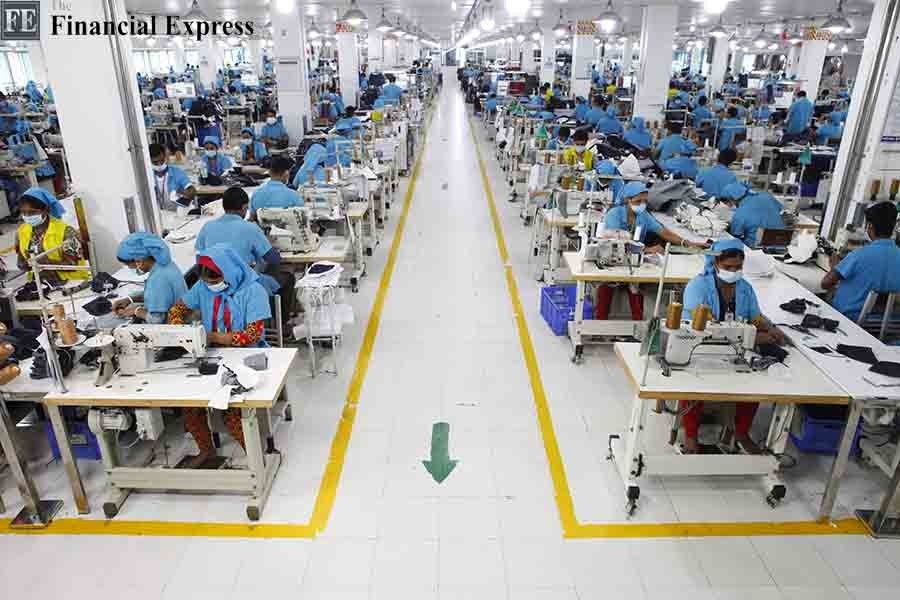The country's ready-made garment (RMG) industry has gradually been adopting new business models or innovative plans to address the challenges surfaced due to the Covid-19 pandemic, according to a study report.
To ensure sustainability in the post-pandemic business recovery, six per cent of 47 garment factories surveyed under the study adopted new business models.
The report - 'A Pathway to Manage Private Sector Impact on Bangladesh National Priority Indicators (NPIs) and Sustainable Development Goals (SDGs)' - also showed that the RMG industry not only contributed to economic development, but was also directly engaged in achieving nine SDGs.
The Bangladesh Garment Manufacturers and Exporters Association (BGMEA), the United Nations Development Programme (UNDP) and the Global Reporting Initiative (GRI) jointly conducted the study on 47 garment factories and launched the findings through a virtual programme on Sunday.
Zuena Aziz, principal coordinator - Sustainable Development Goals (SDG) Affairs at the Prime Minister's Office (PMO), was virtually present as the chief guest, while BGMEA President Dr Rubana Huq chaired the event. Sudipto Mukerjee, Resident Representative - UNDP Bangladesh, also spoke on the occasion.
The 47 surveyed RMG factories were awarded in the event for their contributions to achieving the country's NPIs and SDGs.
These factories created employment for some 44,064 workers in the last fiscal year (FY), 2019-20, and exported goods worth a total of US$1.6 billion during the last fiscal, according to the report.
It illustrated the actions that the RMG businesses took to make progress towards meeting the SDGs, the challenges the sector was still facing, and what it would take to overcome the said challenges and make a bigger impact on achieving the NPIs and SDGs.
The report showed how the RMG sector was not only contributing to the country's macro-economic performance, but also to achieving NPIs and SDGs by creating employment, supporting healthcare of its workforce, making investments in up-skilling the workforce, adopting resource recycling, and increasingly using renewable energy.
About 13 per cent of the surveyed RMG factories furloughed workers because of the financial losses that they incurred due to the Covid-19 pandemic, according to the report.
Some 24 per cent of the factories reported that they had Covid-affected workers, and the workers returned to work within an average of 25 days upon submission of coronavirus negative test reports.
According to findings, all the participating factories had an environment management system, and 42 per cent of these had set measurable goals to reduce energy, waste and resource consumption by 2.0 to 15 per cent in the next three years.
Some 15 per cent of the surveyed factories used recycled water in production process or in sanitation facilities, and 24 per cent of the factories practiced rainwater harvesting and used the water for gardening, car washing or sanitation.
Regarding the SDG-8 on decent work and economic growth, it revealed that despite recent challenges, employee turnover reduced progressively by almost a quarter in the past three fiscal years - from 1,702 across 47 factories in FY 2017-18 to 1,308 in FY 2019-20.
Some 41 per cent of the factories collaborated with buyers on cleaner production and supply chain efficiency towards meeting the SDG on responsible consumption and production, the report added.


